Tributes paid to '˜Mr Sunderland' - the man who helped bring Nissan to Wearside
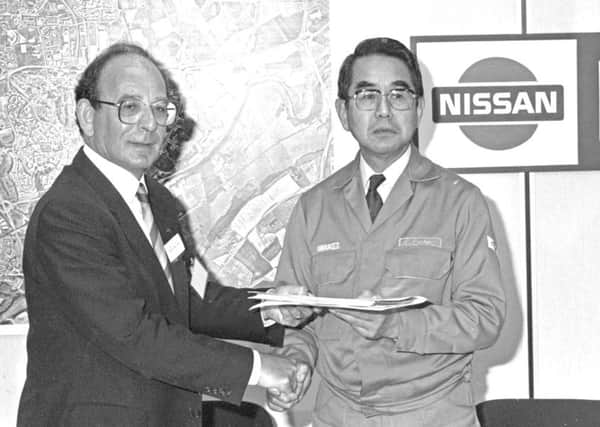

Charles Slater spent decades fighting for the future of the city during his 33 years in politics.
Known as Mr Sunderland, he served as a leader of Sunderland City Council, as Deputy Lieutenant of Tyne and Wear and as mayor of the city – in addition to working as a solicitor until his late 60s.
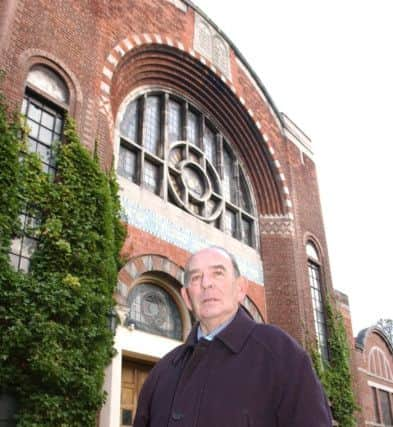

Advertisement
Hide AdAdvertisement
Hide AdAs part of his work as a councillor, he championed comprehensive education and pushed for a revamp of the city centre.
In recent years, Mr Slater had suffered with ill health and he passed away on Saturday, at the age of 88, just six months after the death of his beloved wife Sonia.
Sunderland Central’s Labour MP Julie Elliott said: “Charles was a wonderful man who gave an enormous amount to the city he was so proud of.
“He will be very sadly missed by many people.
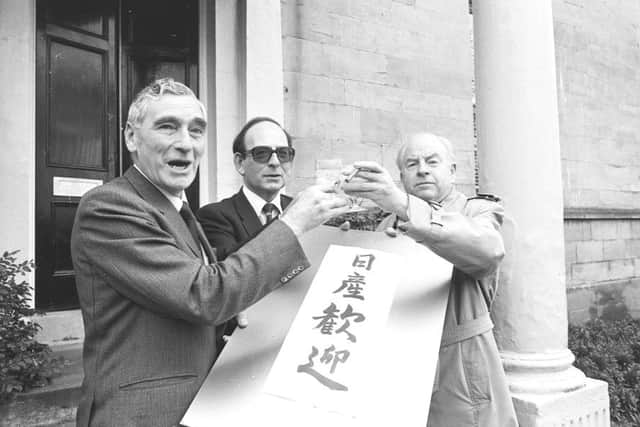

“He was a man of great wit and great intelligence – a man who devoted much of his life to Sunderland.
Advertisement
Hide AdAdvertisement
Hide Ad“He was very supportive of me, and always gave good advice.”
Mr Slater, son of Simmons furniture store manager Sidney Slater and his wife Sarah, was born in Gateshead at the start of the Great Depression and to Sunderland in 1940.
At 14, he enrolled in Hebrew classes at Ryhope Road Synagogue, where he met Sonia Clark.
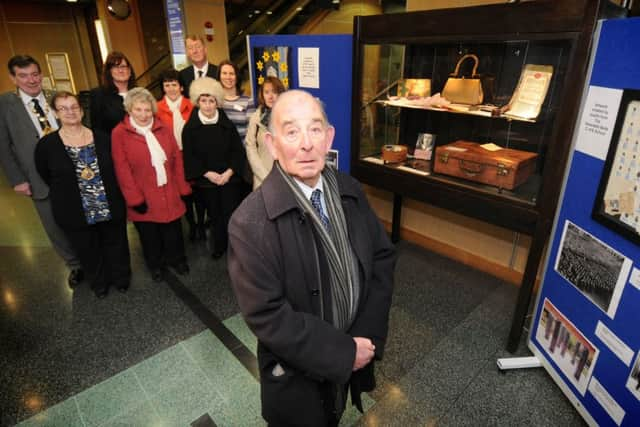

It was love at first sight, and the couple were married for 59 years before Sonia’s death.
Advertisement
Hide AdAdvertisement
Hide AdAs a young man, Mr Slater developed an interest in current affairs and politics while at Bede School and, after a stint with the RAF on National Service, he returned home to study law at Durham University.
His first steps into local politics took place in 1958, when he was elected unopposed as the Labour councillor for Bridge Ward, and in 1961 he won his first contested election.
Later that decade, he helped devise a new pedestrianised shopping area – The Bridges – as chairman of the planning committee.
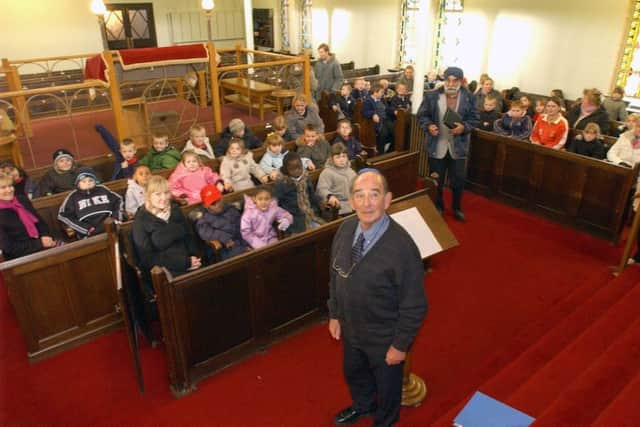

“Charles went into politics to make a difference,” said former Echo writer Carol Roberton, who worked with him on the Wearside War for Work campaign in the 1980s.
Advertisement
Hide AdAdvertisement
Hide Ad“He was a man who would go not just the extra mile, but the extra marathon in the cause of Sunderland. His huge intellect and great wit made him a giant of the local political and legal scene.”
Mr Slater successfully challenged his uncle, Sir Jack Cohen, for the post of opposition leader in the late 1960s – eventually taking his party to victory and becoming leader of the council.
His time at the forefront of local politics saw him welcome the abolition of the 11-plus, as well as spear-heading the introduction of comprehensive education and tertiary colleges.
He was most proud of his work on the bid to bring Nissan to Wearside, fighting off national competition, as well as opposition from the left wing of his party.
Advertisement
Hide AdAdvertisement
Hide AdCouncillor Peter Wood, the Conservative member for St Michael’s Ward said: “Charles was a skilful politician and able council leader.


“He was an excellent debater and we crossed swords on many occasions in the council chamber when - as now - I was leader of the Conservative opposition.
“Our hostilities were, however, reserved for the council chamber. “He was a man who had Sunderland’s best interests at heart and for whom I had the utmost respect.
“We remained friends after he left the council and I very much enjoyed our not infrequent conversations.”
Advertisement
Hide AdAdvertisement
Hide AdCouncillor Paul Watson, leader of the council and Labour member, said: “He was a fine man who served people with his public duties as a councillor, as leader of the council, and in business and professional life with his legal work.
“He always had a desire to see Sunderland do well and our thoughts and sympathies are with his family.”
Mr Slater continued to practise as a solicitor until his late 60s, but his political career came to an abrupt end in the early 1990s, when history repeated itself.
The then Town End Farm councillor quit as leader of the council on November 20, 1990, in the face of behind-the-scenes jostling for power at Civic Centre and ward levels.
Advertisement
Hide AdAdvertisement
Hide Ad“In the end, I suppose I got what I deserved,” he later admitted.
“I never suffered fools gladly and, in the end, they didn’t suffer me either.
“I knew that my time had come to stand down.”
Although Mr Slater steered clear of all things political after stepping down, he still retained an avid interest in Sunderland’s future, as well as its history – giving talks on the city’s Jewish links.
In 2014, however, Mr Slater – by then battling progressive Parkinson’s Disease – and his wife took the tough decision to leave Sunderland for London, to be closer to their children Laurence and Sharon.
Advertisement
Hide AdAdvertisement
Hide AdIn a statement from his children, they said: “Dad was always loyal to Sunderland.
“The town was in his blood.
“He took great pride in telling everyone he met about his time in politics and being Mayor of Sunderland.
“Even after he moved to London, he took a great interest in everything that happened ‘back home’.
“In his latter months his books and memorabilia of Sunderland were a great comfort to him.”
No funeral arrangements have yet been made.
Advertisement
Hide AdAdvertisement
Hide AdFriends and former colleagues of Mr Slater can contact Laurence and Sharon via email at [email protected].
The Slater family political history in Sunderland
Sunderland was in the grip of the industrial revolution when Charles Cohen – Charles’s great-grandfather – fled Lithuania for Wearside in 1888; penniless and unable to speak English.
But the Rabbi, a learned man with several children, was provided a loan from Sunderland Hebrew Board of Guardians and quickly established himself.
Within just a few years he had founded the Beth Hamedrash synagogue in Mowbray Road, and his descendants were to have a huge influence on Wearside politics.
Advertisement
Hide AdAdvertisement
Hide AdThe first of Rabbi Cohen’s grandsons to join Sunderland Council was Jack Cohen, who was elected for Monkwearmouth Ward on November 1, 1929.
He and his wife Kitty were one of the few husband-and-wife teams to have the honour of being Mayor - Sir Jack in 1949-50 and Lady Cohen in 1961-62.
Another of Charles Cohen’s grandsons to serve on Sunderland Council was Lieutenant-Colonel Mordaunt Cohen, a hero of the Second World War.
Mordaunt, who was mentioned in dispatches, made legal history in 1974 after being appointed to the judiciary as a chairman of industrial tribunals.
Advertisement
Hide AdAdvertisement
Hide AdHis wife, Myrella, was already serving as a circuit judge - and they became the first husband-and-wife team to have full-time judiciary appointments.
The third grandson of Charles Cohen to serve on Sunderland Council was Joe Landau - who became the first Militiaman to join up during the Second World War.
Joe eventually reached the rank of Brigadier Major in the Royal Artillery and, after being demobbed, joined the family store of F. Clark in Olive Street.
He went on to serve as a Conservative councillor for St Michael’s Ward from 1968-1973, before serving on Tyne and Wear County Council for 13 years.